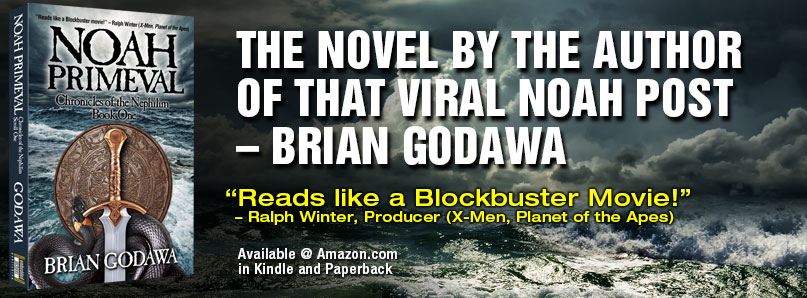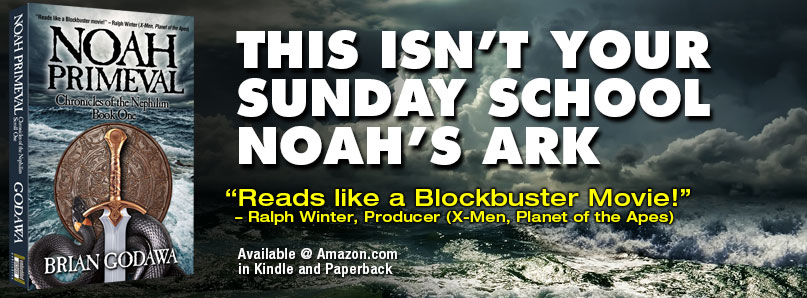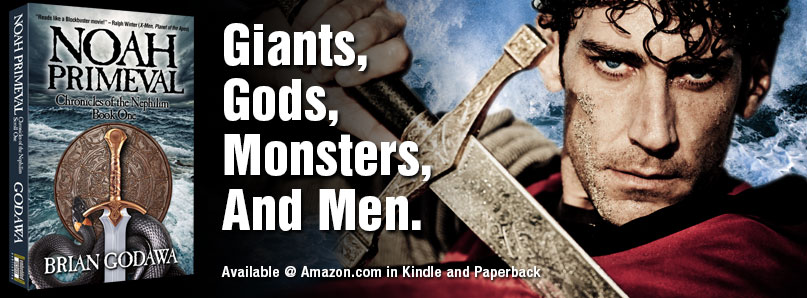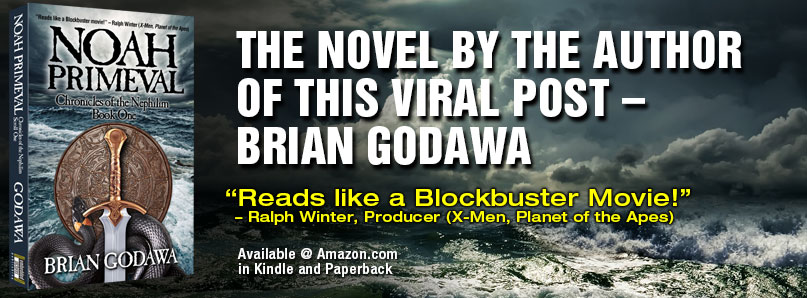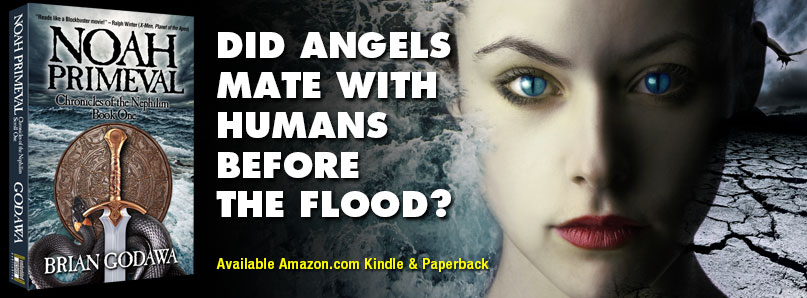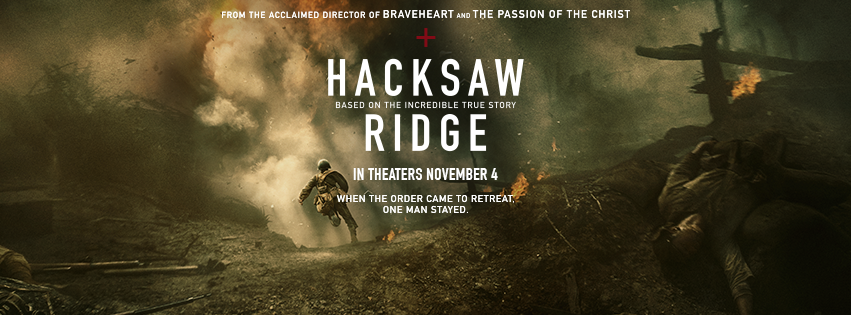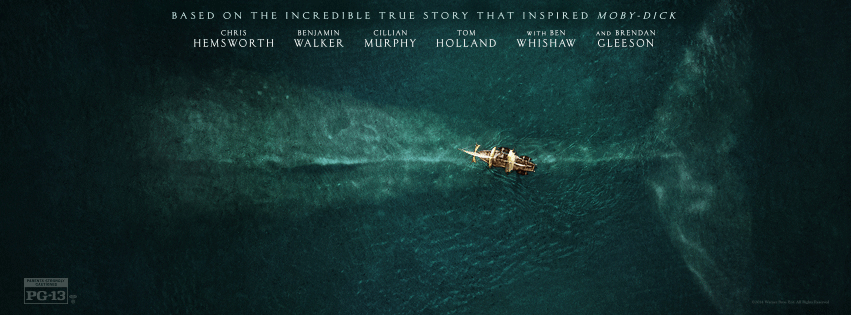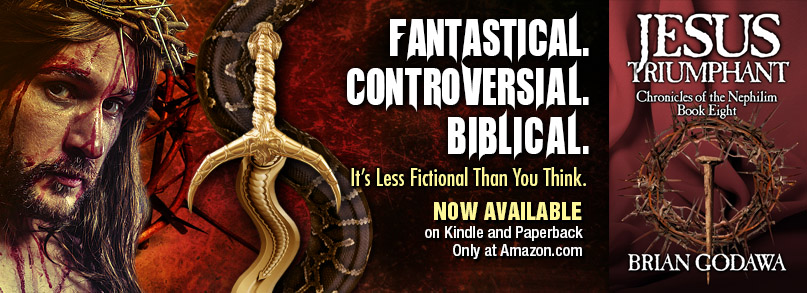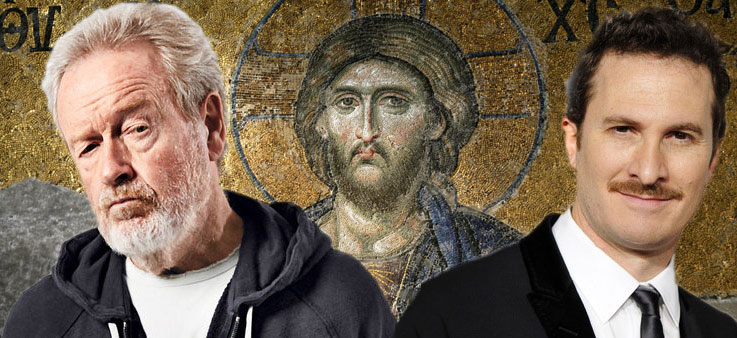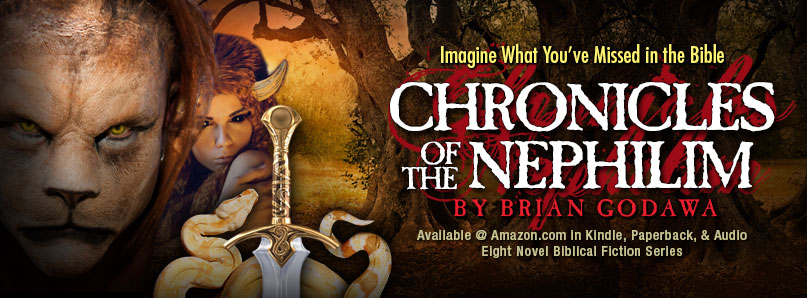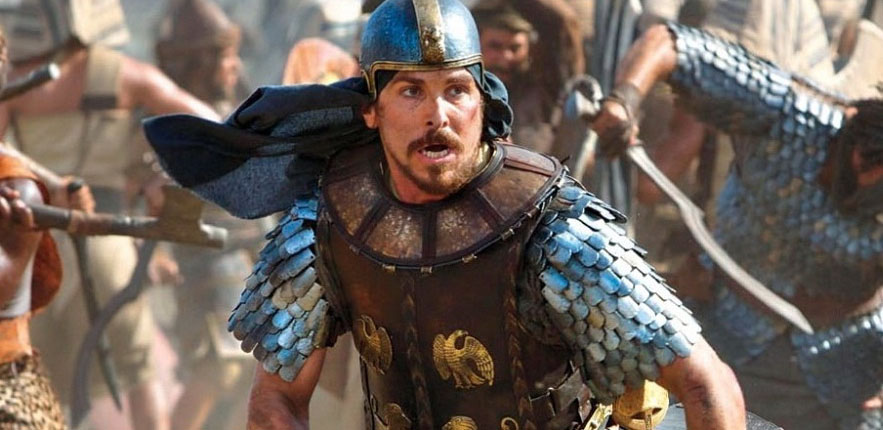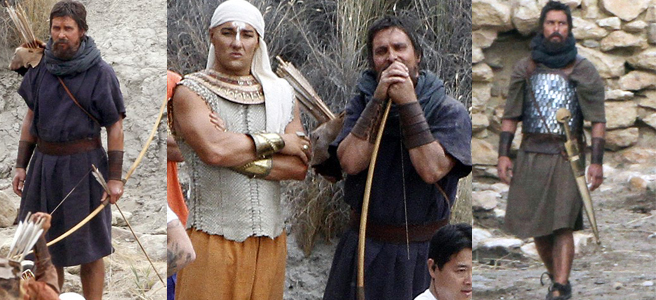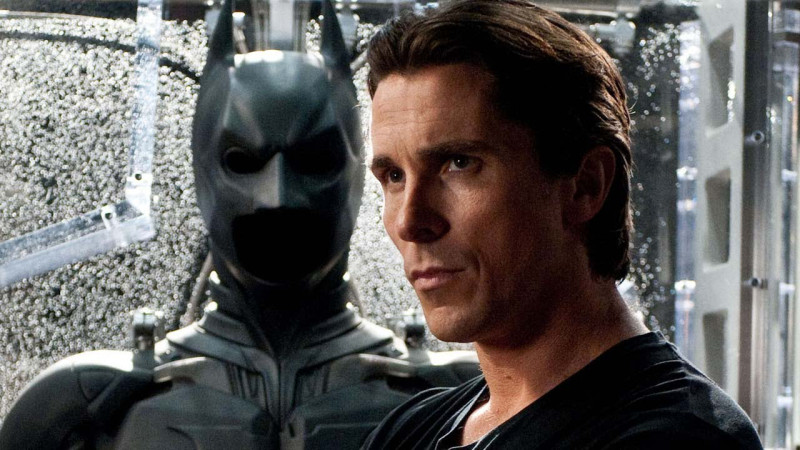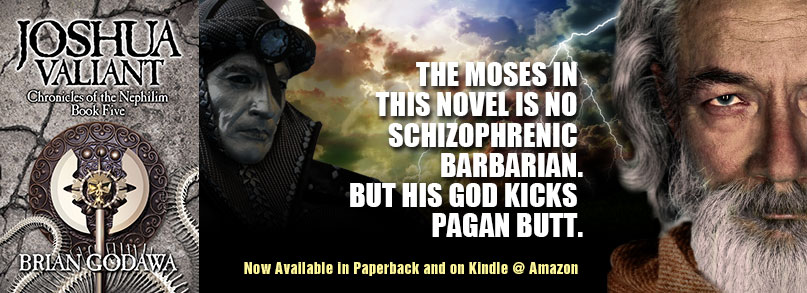In my previous post, I explained how subversion in movies and other storytelling works. The storyteller basically retells someone else’s story, but does so within his own worldview and thereby changes the meanings of otherwise familiar memes and themes of the received cultural narrative. I then explained how Aronofsky subverted the Judeo-Christian Biblical God with his movie Noah into a humanistic metaphor of a “silent god” who has no real existential difference from a nonexistent god. I shared my conclusion that Christian defenders of the film were guilty of autobiographical projection of their own meanings onto the movie and therefore neglecting to address the director’s actual vision.
One may argue therefore that Aronofsky’s atheist subversion doesn’t work on them! Aha! Well, I wrote all about how storytelling in movies and TV works on us whether we know it or not by bypassing the intellect and connecting through emotional dramatic incarnation. That was in Hollywood Worldviews. No time to repeat all that. I’m interested in trying to exegete the director’s intent, because we owe that to the artist before we decide what we personally draw out of the movie.
But also, remember, Aronofsky is drawing from an eclectic mixture of Kabbalah, humanism, environmentalism and other sources so he is not going to have a systematic one-for-one correspondence with any one system. He carries the influence of those ideas, and about the only consistent connection between them all is their intent to subvert the Judeo-Christian sacred narrative.
“I’m Godless. And so I’ve had to make my God, and my God is narrative filmmaking, which is — ultimately what my God becomes.”
– Darren Aronofsky
Another way of saying this is that his religion is storytelling, another perspective shared by many in Hollywood who have been deeply influenced by Joseph Campbell’s mythological worldview.
Serpent Ho!
One of the things that rubs the viewer confused while watching the movie Noah is the positive image of the Serpent in the story. We see the Serpent shedding his bright green skin to come out a black snake with extra eyes (Reminding me of the mystical “third eye” crows in Game of Thrones). The Serpent’s skin then becomes the magical talisman birthright of Adam passed down to Noah. Then this Serpent skin is wrapped around the arm of the right person, it glows with presumable enlightenment and blessing. Tubal-cain, the villain, takes the skin away before Noah can receive it from his father. But it brings no glowy favor to him. Ham steals it and it disappears until the end of the movie where he gives it back to Noah. Noah then wraps the skin around his arm and it glows with favor as he touches the two little granddaughters. So the skin of the Serpent in this movie is clearly a positive image.
Defenders of the movie have lined up to try to explain away the positive image of the serpent by saying the skin represents the original goodness of the serpent’s creation before he became evil. But I think they may be projecting their own interpretation onto the imagery.
First, there is no reference at all in the Genesis text to the Serpent as being good before the Garden. It is possible, though not probable because it is deliberately not addressed in the story. It just describes him as more cunning than the other animals created (Genesis 3:1). All imagery of the Serpent throughout the Bible is always negative. Even the bronze serpent on the pole in Numbers 21 that healed the stricken was still the image of the deadly snakes hung in judgment (healing through judging the serpent). And Christ’s death on a cross likened to that serpent on a pole is also a visual metaphor for Christ taking on our sin (John 3:14) or “becoming sin for us” (2Corin. 5:21). That’s negative serpentine imagery.
[New addition in response to Peter Chattaway’s apologetic for the Serpent] Genesis 1:6 says “God created the great sea monsters.” That Hebrew word for “sea monsters” is actually tanninim, which means sea dragons. In Canaanite and other Mesopotamian creation stories, the sea dragon or sea serpent represents chaos that the chief gods overcome to create the world. So in Genesis, God is subverting that image by “defanging” the standard negative power symbol into a mere creature created by God and under his sovereignty.
In other places, this sea dragon is also called “Rahab,” but is the same sea serpent monster of chaos that the writers describe as symbolic of God’s covenantal power over the chaos (Job 9:13; 26:12; Psalm 89:10; Isaiah 30:7; 51:9)
But later, in other poetic texts, Leviathan the sea dragon takes up this personification of the serpentine negative power of chaos, only to be described as easily controlled or overpowered by Yahweh (Job 3:8; 41:1; Isaiah 27:1; Psalm 74:14; 104:26)
This negative symbolic Serpent imagery concludes in Revelation 12:9 when Leviathan is recast as the Dragon trying to kill Messiah. Here we see the description: “And the great dragon was thrown down, that ancient serpent, who is called the devil and Satan, the deceiver of the whole world…” (Revelation 12:9)
Mr. Chattaway tries to create a more diluted negativity of the Serpent in other Biblical texts but never quite does the job. Jesus telling his disciples to be shrewd as serpents, innocent as doves still reinforces the negative image of the serpent, tying it to the “cunning” we heard about in the Garden. But in ironic poetic fashion, Jesus plays an extreme counter to that image with the innocence of doves to communicate that we are not to have the evil of the serpent.
The Egyptian staffs turning into serpents is also a negative image, but Moses’ staff transformation into a snake that eats the others is simply another ironic mockery of God saying that he is sovereign over evil and can overcome it with its own negativity. Remember the sea dragon domestication? Similar thing here.
The Dan reference in Genesis 49 is a bit more interesting, but suffice it to say that the tribe of Dan resided in the area of Bashan which meant “place of the Serpent.” So the use of viper imagery there plays off that original pagan notion, but describes Dan’s fighting like a serpent biting a heel, which is another poetic play of saying Dan will be to his enemies like the evil Serpent of the Garden is to the offspring of the Woman” (Genesis 3:15).
There actually is one very powerful positive image of serpents in the Old Testament, but I’m going to make Mr. Chattaway find it for himself. And if he does, it won’t change the fact that the serpentine imagery related to the Serpent in the Garden and extended into Rahab, Leviathan and Satan is always negative. In the Bible the Satanic Serpent is never thought of in positive terms.
OMG, I almost forgot: Jesus stressed that the devil or Satan, the “serpent of old,” “was a murderer from the beginning, and does not stand in the truth, because there is no truth in him. When he lies, he speaks out of his own character, for he is a liar and the father of lies.” (John 8:44–45). There is no Biblical notion of the Serpent being good at the beginning. That is for a very theological purpose of identifying the Serpent with evil, and ultimately with the people of Canaan who would be dispossessed from the Land.
[End of new addition]
In the pagan ancient Near East of Israel’s day, however, the serpent had far more positive imagery than negative. Here are some of them as listed by scholar James Charlesworth in his book, The Good & Evil Serpent: Life, wisdom, magic, health, fertility, transcendence, creation and light, divinity, earth-lover, energy and power, immortality. (1)
Remember, Aronofsky is a self-proclaimed atheist with mystical mythical dalliances. So his spin is going to express his worldview through the narrative. And what does he do with that “Serpent of old,” that bringer of temptation to Original Sin? That Father of Lies? He inverts the Serpent from a negative image to a positive one of life, enlightenment and blessing.
This illustrates another worldview influence of cosmic humanism which has affected many in Hollywood through Joseph Campbell’s mythological mish mash and mystical monism, a kind of atheistic theology (contradictory, I know, but very relevant to Aronofsky’s view).
(Excerpt from The Power of Myth by Joseph Campbell)
MOYERS: In the Christian story the serpent is the seducer.
CAMPBELL: That amounts to a refusal to affirm life…
CAMPBELL: Why was the knowledge of good and evil forbidden to Adam and Eve? Without that knowledge, we’d all be a bunch of babies still in Eden, without any participation in life…The serpent, who dies and is resurrected, shedding its skin and renewing its life, is the lord of the central tree, where time and eternity come together. He is the primary god, actually, in the Garden of Eden. Yahweh, the one who walks there in the cool of the evening, is just a visitor. The Garden is the serpent’s place. It is an old, old story.(2)
So the Serpent was not influencing man to fall into sin, but rather opening his eyes to enlightenment and autonomy from God. You see, in this scheme, God is either a bully who wants to control man and is foiled by the wise Serpent, or is secretly desirous for man to disobey so he will learn to make his own decisions! In other words, God wants man to grab the control of defining or “knowing good and evil” for himself and not rely upon God. So in this revision, the Serpent is actually a pathway to maturity of humanity, NOT sin.
Thus, the Serpent is a positive image. And this is why at the end of the movie Noah, Illa tells Noah that God wanted Noah himself to decide if mankind was worth saving. Because it is up to man to decide good and evil and to define his fate (NOT God). Sssssound Ssssssimilar to Sssssomething?
In fact, in the beginning of the movie, when Lamech is about to give Noah the Serpent skin, he wraps it around his arm all glowy-like, and their hands are about to touch in an obvious homage to the creation image of Michelangelo’s Sistine Chapel. The creation image of God’s hand about to touch Adam to give him the breath of life. The Serpent is a “creator of life” in this story, not the bringer of death as he is in Genesis. Also, the snake skin is wrapped around the arm in the same way that modern Jews wrap phylacteries or tefillin around their arms. The symbolism of the tefillin wrapping is that they contain little boxes with Scripture in them that is meant to represent God’s Word as the binding source of everything they do (Deut. 11:18). So in the movie Noah, the life-giving Word of God is replaced with the skin of the Serpent. More creepiness.
The heart-like pulsating fruit on the Tree of the Knowledge of Good and Evil in the Noah movie most likely represents the life that Adam and Eve would receive upon eating it. Again, life instead of death.
This could also explain the odd notion that in the film the Watchers are banished by God for wanting to help mankind. That never seemed to make sense in the story. Why would God punish angels for helping mankind? Isn’t that their M.O. after all? But it does make sense if the meaning of this mythological remake is that God wants man to “do it on his own.”
Ironically, the idea that man would become mature by choosing his own destiny (against the pettiness of a jealous angry controlling God) is exactly what the Serpent suggested in the Garden to Eve: “For God knows that when you eat of it your eyes will be opened, and you will be like God, knowing good and evil” (Genesis 3:5).
This humanistic interpretation can be found in critical Biblical scholarship. Liberal scholar James Charlesworth suggests that to “characterize [God] as villain is not impossible, in view of 3:8 (the Garden is for his own enjoyment), and vs. 23 (where he feels ‘threatened’ by the man!) As villain, he is the opponent of the main program.” (3)
Charlesworth then concludes that, “The story of the serpent in our culture is a tale of how the most beautiful creature [the serpent] became seen as ugly, the admired became despised, the good was misrepresented as the bad, and a god was dethroned and recast as Satan. Why? It is perhaps because we modern humans have moved farther and farther away from nature, cutting the umbilical cord with our mother earth?” (4)
Earth worship here is linked to the Serpent as good guy. Ssssssomething Sssssounds Sssssimilar again!
Yes, I do admit that I am engaging in interpretation in this post. More than in my previous ones. And I acknowledge the possibility that I may be wrong in some ways. Is this any different than the projection I am suggesting is going on with defenders of the movie? Not quite the same thing. Because I am not importing my own Judeo-Christian interpretation upon the images of Aronofsky’s in trying to justify it. I am trying to make sense of those images with Aronofsky’s own self-proclaimed worldview.
And that is a subversive worldview indeed.
Or as Genesis would put it, “cunning.”
Buy the novel Noah Primeval, here on Amazon.com in Kindle or paperback. The website www.ChroniclesOfTheNephilim.com has tons of way cool free videos, scholarly articles about Watchers and Nephilim Giants, artwork for the series, as well as a sign-up for updates and special deals.
[UPDATE] So Mr. Chattaway has sought to debunk the critique of the positive Serpent imagery that I and others have pointed out. He goes to great length and detail in a crafty defense of the “positive Serpent” as I will call it. His beef is mostly with the “Noah is Gnostic” meme that he thinks is an unfair description of the movie, and he spends most of his energy addressing Brian Mattson’s post that first made that argument.
He then addresses this post of mine as one of the culprits of the “Noah is Gnostic” meme and says that I “referenced Mattson’s “Noah is Gnostic” theory repeatedly in a post two days ago [… and then] drops the subject in his most recent post,” — this one you are reading.
Well, not really.
Because I like Peter, I am going to give him the benefit of the doubt that he has mistakenly identified my arguments with Mattson’s and then confused my own arguments in this piece as “dropping the subject” as if I saw the weakness of it and tried to change the subject.
I never dropped the subject. I didn’t raise it to begin with. I said that Mattson made some brilliant points, but then I carefully explained my own interpretation of what was going on, which was of a different focus of concern than Mattson’s. I never argued that Noah was Gnostic. Reread my words above and in the previous post. I argued that Aronofsky is most like Joseph Campbell in his drawing from many sources including Gnostic and Kabbalah and other Rabbinic sources. I’ll say it again, for Peter and those who missed it, “Noah is not strictly gnostic or strictly humanist or strictly atheist, and obviously does in fact traffic in Judeo-Christian imagery. Indeed. Aronofsky, like most people does not liturgically follow the dogma of ancient sectarian philosophies and religion. Mattson was not suggesting that. Aronofsky does what most modern modern westerners do: He picks and chooses elements of things he likes from a variety of ultimately incongruous systems of thought.” And then, “Mattson’s claim about the influence of Gnosticism is largely right. No, Noah isn’t a dogmatic or consistent reproduction of one of the various strains of ancient Gnosticism. But in the same way the 2nd and 3rd century Gnostic Gospels subverted the Biblical Gospels by retelling the story of Jesus through a twisted unbiblical paradigm of inversion, so Noah is doing the same thing.”
Like Campbell, one of his influences, Aronofsky picks and chooses from different traditions to create a confusing mixture of ideas that nevertheless happen to have one consistent theme: The subversion of the Biblical Serpent from a negative into a positive image, along with the Serpent’s temptation that man take control of his fate and moral decisions away from a silent and harsh God. (Illa: “The choice was put into your hands because he wanted you to decide if man was worth saving.” –This is the equivalent of the Serpent’s offer of being like God in “knowing good and evil” Genesis 3:5)
Chattaway becomes confused when he relativizes and denigrates the Christian interpretation of the Serpent and then privileges Aronofsky’s Rabbinic Jewish interpretation. He says, “I think part of the problem here is that Christians have been brought up to assume that the serpent in the Garden of Eden was really Satan in disguise. The actual text of Genesis never says this — it simply says that “the serpent was more crafty than any of the wild animals the Lord God had made” — but in this, as in so many other areas, Christians read the Bible through the filter of later traditions rather than reading just what the text actually says.”
Now Chattaway is usually a rather sharp mind, but his blade gets dull here when he completely misses the inherent negativity “of what the text actually says.” The text describes the Serpent as “cunning” or “crafty,” which scholars explain is a word play in Hebrew as an opposite of Adam and Eve’s “naked” innocence. And then of course, we have his temptation and lie. Yes, he is a nasty being and that is what I was arguing. I actually didn’t argue that the Serpent was “really Satan in disguise.”
But then Chattaway dismisses the Christian interpretation as a “later interpretation” without apparent textual basis, while simultaneously avoiding the fact that Aronfsky’s Rabbinic interpretation is also a “later interpretation.” “What the text actually says” is that the Serpent was cunning and was the tempter and deceiver. It doesn’t say that he was good and became evil. THAT is the later tradition that changes the text.
The fact is that everyone is interpreting through a tradition. The question is which is the most Biblical? While Chattaway lists an impressive amount of examples from Rabbinic and other ancient Jewish extra-biblical sources to justify the “Positive Serpent” spin, he fails to address the Biblical argument itself as I have illustrated. Namely that the Serpent has an unbroken inter-Biblical “tradition” of negativity from the Serpent in the Garden to the dragon imagery throughout the Old Testament (Hebrew: tannin), to Rahab, and Leviathan the sea serpent with multiple heads (again, OT), to the seven headed dragon of Revelation. Yes, the New Testament calls the Serpent Satan, but the bigger point is that the meaning of the Serpent from Old to New Testament is as an incarnation of chaos and/or evil. (Read my paper on Leviathan here). That ain’t some “later tradition,” like the Rabbinic one he quotes.
Lest I need to remind Peter that the Christians who wrote the New Testament were in fact Jews, steeped in ancient Jewish tradition. It is a common fallacy to denigrate “Christian interpretation” as if it is something non-Jewish or “anti-Jewish” when in fact, it is the most faithful JEWISH interpretation of the Old Testament.
Bottom line: The Apostle John kicks Rabbi Eliezer’s and Pseudo-Jonathan’s butts when it comes to Old Testament hermeneutics. Canon over fodder. As I said before, Aronofsky’s Noah has surely drawn from Rabbinic and (gnostic influenced) Kabbalah sources, but my argument has been that they are antithetical to Biblical meaning.
Thus when Chattaway quotes writer Ari Handel’s statement about the shed skin of the snake being “a symbol of the Eden that we left behind. It’s a garment to clothe you spiritually,” while this certainly ties in with the sources Chattaway quoted, it doesn’t justify it as a Biblical notion but only as ancient Jewish speculation. And it doesn’t change the creepy fact that in the movie Noah, the Serpent has been transformed into a positive image through the film. Granted, it’s the skin of the Serpent. But the skin is the symbol of the Serpent. And the Serpent is the symbol of lost Eden.
Not in the Bible. The Serpent is the symbol of the enemies of God. What does God actually say of the Serpent? Not that the Serpent is a symbol of what Adam and Eve lost. But rather, “I will put enmity between you [Serpent] and the woman, and between your offspring and her offspring; he shall bruise your head, and you shall bruise his heel.” Genesis 3:15. This is a War of the Seed of the Serpent with the Seed of Eve that I am writing about in an eight volume series of novels called Chronicles of the Nephilim. (Shameless act of self-marketing. Yes, I am a capitalist. Call me Tubal-cain.)
When Chattaway defends Aronofsky’s Kabbalah and Rabbinic interpretive framework over against the Christian Jewish interpretive framework, he merely makes my argument, that the movie Noah and its God and Serpent are not Biblical.
So for a simple summary of the issues:
The Bible: Serpent bad, God good. God decides Man’s value.
Aronofsky’s Noah: Serpent good, God bad (and silent). Man decides Man’s value.
That’s subversion.
FOOTNOTES
1 James Charlesworth, The Good and Evil Serpent: How a Universal Symbol Became Christianized, New Haven: Yale University Press, p. 220.
2 Campbell, Joseph; Bill Moyers (2011-05-18). The Power of Myth (p. 54). Knopf Doubleday Publishing Group. Kindle Edition.
3 Charlesworth, The Good and Evil Serpent, p. 309.
4 Charlesworth, The Good and Evil Serpent, p. 419.

